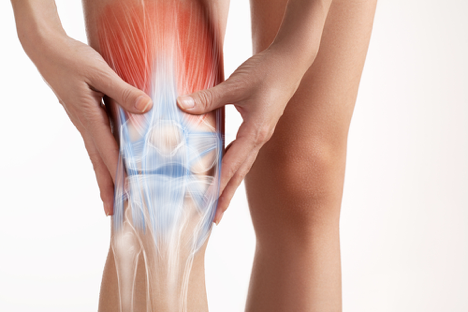Navigating the landscape of dietary choices for optimal skeletal wellbeing can often feel like a complex puzzle. One critical piece of this puzzle is understanding the impact of specific nutrients on our bones and joints. A key factor in this journey is the bone health formula, created by the team at PureHealth research. It’s a blend of vital nutrients and lifestyle choices that synergistically contribute to the strength and resilience of our skeletal system.
As we delve deeper, an intriguing question arises: when it comes to bolstering bone density and joint function, should we focus more on collagen or calcium? This question is not just academic but has practical implications for our daily diet and supplement choices. Both collagen, a protein that provides elasticity and strength to our connective tissues, and calcium, the cornerstone mineral for bone fortitude, play indispensable roles.
However, their contributions differ in significant ways, and understanding these differences is crucial for anyone aiming to maintain or improve their bone and joint health. This exploration will guide us through the science behind these key components, unraveling how each contributes to a robust skeletal structure.
Let’s embark on this journey to better understand and enhance the health of our bones and joints.
Food for Bones and Joints
Maintaining strong bones and healthy joints is crucial for overall well being, and the food we eat plays a significant role in achieving this. A balanced diet rich in specific nutrients can be a natural safeguard against bone density loss and joint issues. Here, we explore various food types that are particularly beneficial for bone and joint health.
- Dairy Products: A classic source of calcium, dairy products like milk, cheese, and yogurt are pivotal for bone strength. Calcium is the primary building block of bones, and dairy products are an accessible source. They often come fortified with vitamin D, which is essential for calcium absorption.
- Leafy Greens: Vegetables such as kale, spinach, and collard greens are rich in vitamin K, which is known for its role in bone metabolism and preventing calcium buildup in arteries. These greens also offer calcium, albeit in lesser amounts than dairy.
- Fatty Fish: Salmon, mackerel, and sardines are not only excellent sources of omega-3 fatty acids, beneficial for joint health, but also vitamin D, which is crucial for bone health.
- Nuts and Seeds: Almonds, chia seeds, and flaxseeds are rich in omega-3 fatty acids and magnesium, a mineral essential for bone health. Almonds are particularly high in calcium as well.
- Lean Proteins: Chicken, turkey, and lean cuts of beef provide protein, necessary for bone and muscle health. They also contain phosphorus, which, like calcium, plays a role in building strong bones.
- Fruits Rich in Vitamin C: Oranges, strawberries, and kiwi are high in vitamin C, which is key for collagen formation, crucial for maintaining the integrity of bones and joints.
- Whole Grains: Foods like brown rice and oatmeal are good sources of magnesium and fiber. Magnesium is vital for bone health, aiding in the formation of bone mineral density.
Integrating these foods into your diet can create a powerful synergy for supporting both bone and joint health. A diet diverse in these nutrients ensures a holistic approach to maintaining a strong and active skeletal system.
Hydration Matters
Hydration, often overshadowed in discussions about bone and joint health, plays a surprisingly pivotal role in maintaining a healthy skeletal system. Water, the essence of life, serves as more than just a thirst quencher; it is integral to the nourishment and functionality of every cell in our body, including those in our bones and joints.
Bones, often perceived as rigid and lifeless, contain water in their composition. Adequate hydration ensures that the nutrients essential for bone health, such as calcium and magnesium, are efficiently transported and absorbed. This process is vital for maintaining bone density and preventing conditions like osteoporosis.
For joints, hydration is equally critical. Synovial fluid, which lubricates and cushions joints, is primarily composed of water. Dehydration can lead to a reduction in this fluid, increasing the risk of joint friction, discomfort, and wear.
Additionally, hydration aids in reducing inflammation and the removal of waste products from joint areas, contributing to overall joint health. Beyond its direct benefits, water intake is indirectly related to bone and joint health through the facilitation of physical activity. Adequate hydration improves muscle function and endurance, enabling more effective exercise, which in turn strengthens bones and joints.
Therefore, ensuring a sufficient intake of water daily is not just a simple health tip; it’s a foundational strategy for preserving the integrity and functionality of our skeletal system. Hydration should be viewed as a key component in the holistic approach to bone and joint health, underscoring the interconnectedness of bodily systems and the importance of seemingly simple health practices.
Final Thoughts
In conclusion, while a balanced diet and adequate hydration form the cornerstone of maintaining healthy bones and joints, sometimes our bodies need an extra boost, especially as we age or face specific health challenges. This is where supplements for joint health come into play. These supplements, often containing ingredients like glucosamine, chondroitin, and omega-3 fatty acids, can provide additional support for joint lubrication, reduce inflammation, and aid in repairing cartilage. They act as an adjunct to the nutrients we receive from our diet and can be particularly beneficial for those experiencing joint discomfort or those at a higher risk of joint degradation.
Moreover, it’s worth exploring comprehensive solutions like the Bone Health Formula offered by PureHealth Research. Such formulas are designed to encompass a range of essential nutrients that support bone density and strength. They often include key components like calcium, vitamin D, magnesium, and other bone-supportive nutrients in well-researched proportions. While individual needs may vary, incorporating a specialized supplement can be a proactive step towards long-term bone and joint health.




















Follow Us